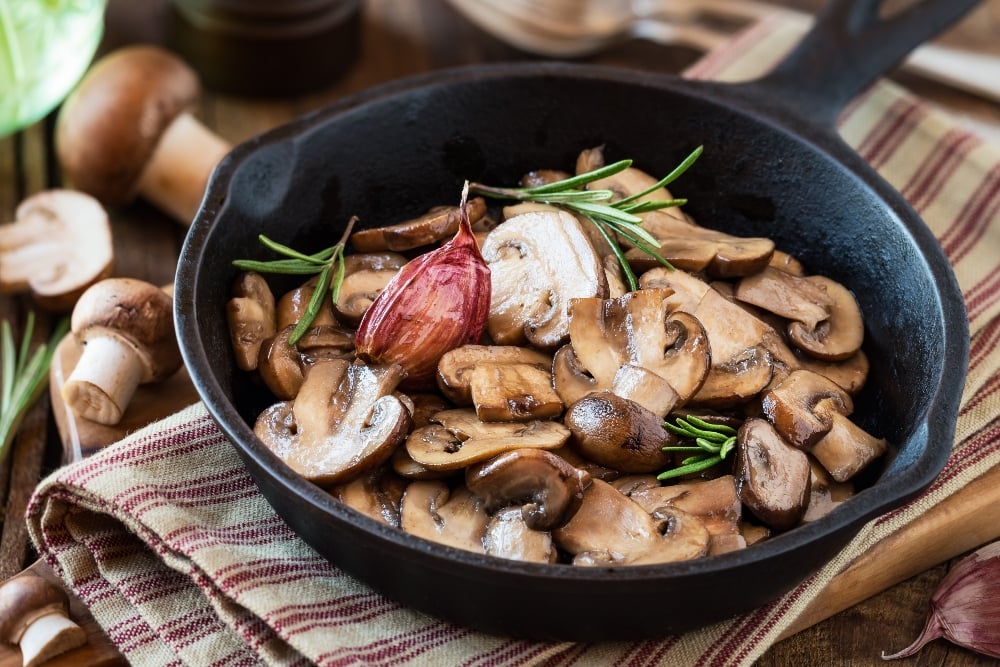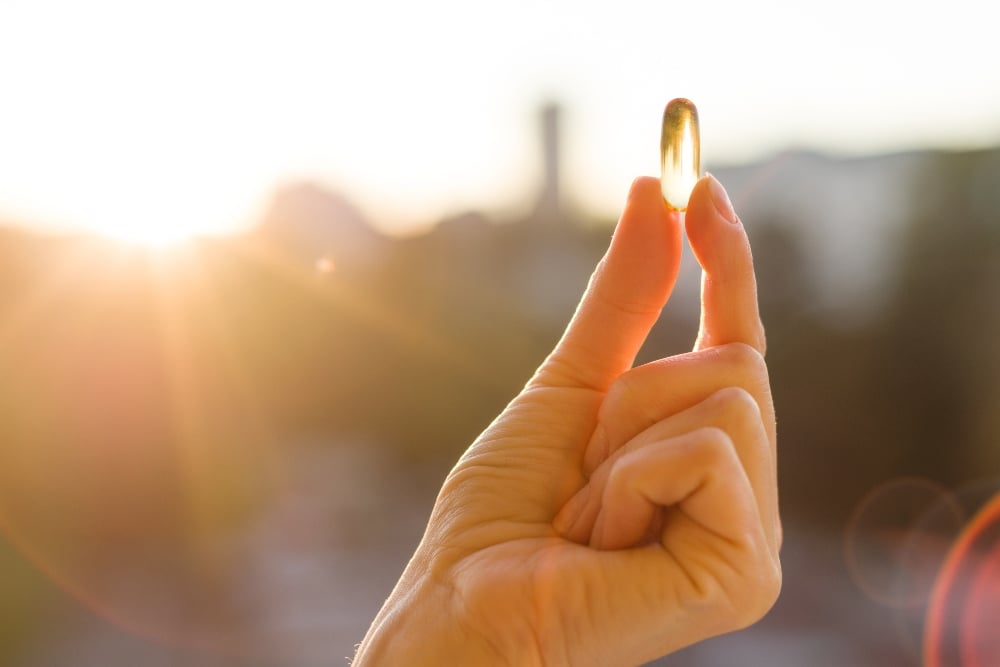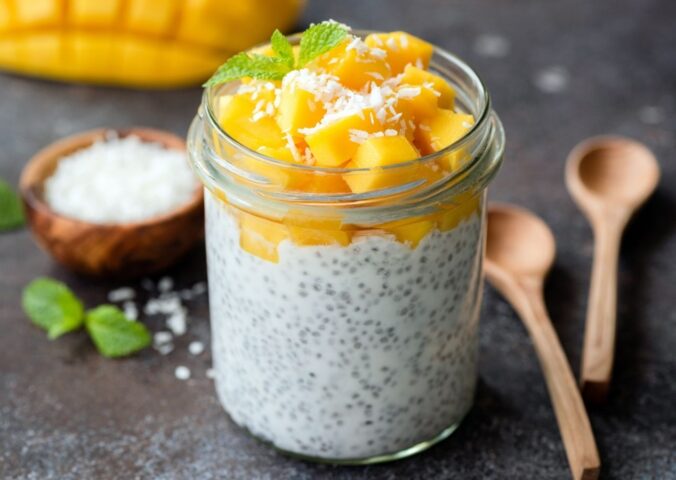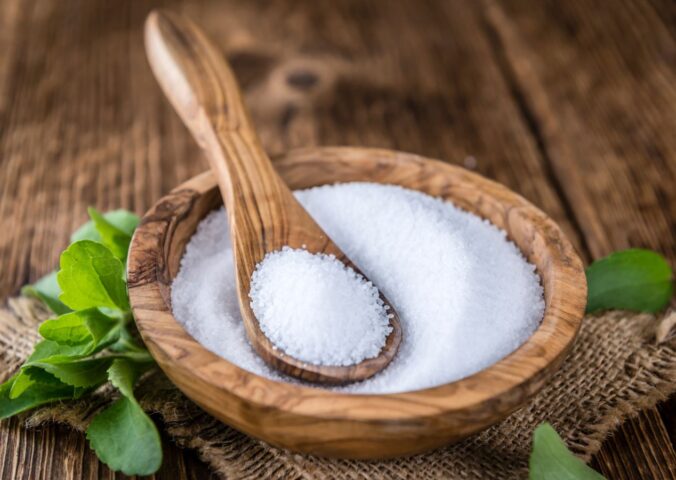Vitamin D is an essential nutrient that everyone needs for good health. Unfortunately, whether you follow a plant-based diet or not, it is often difficult to source enough from foods or sunlight in certain regions of the world. This can potentially lead to a vitamin D deficiency in vegans and non-vegans alike.
Therefore, experts advise people to take a supplement, at least during the winter months. However, some vitamin D supplements or fortified foods aren’t suitable for vegans.
This plant-based guide to vitamin D explains why you need it and how insufficiency can affect your health. In addition, we discuss how to get an adequate daily dose, which supplements are suitable, and what dosage to take.
What is vitamin D, and why do we need it?
Vitamin D is a fat-soluble vitamin that people consume in some foods and make in the body from ultraviolet rays from sunlight.
We need vitamin D for several essential functions in the body, including:
- Helping calcium absorption, maintaining strong bones, and preventing osteoporosis
- For nerve transmission and muscle function
- Supporting the immune system
- Reducing inflammation
- Regulating genes and cell growth
Although current evidence is inconclusive, some studies suggest that vitamin D may help to prevent some types of cancer, autoimmune diseases and diabetes, and cardiovascular disease. Additionally, scientists have observed an increased risk of depression with lower vitamin D levels.
Children with insufficient vitamin D may develop rickets. Meanwhile, adults with a deficiency may develop osteomalacia, the softening of the bones.
How much vitamin D do we need a day?

In the UK, the government maintains that everyone over one year old needs 10 micrograms (mcg) a day of vitamin D. The recommendation includes pregnant or lactating people and those groups at an increased risk of deficiency.
Infants need 8.5-10 mcg a day from birth until one year of age.
The UK government recommends that everyone consider taking a daily vitamin D supplement during the autumn and winter months. This is because it’s challenging to obtain enough vitamin D from sunlight between October and early March.
Other sources recommend higher daily intakes. For example, the Linus Pauling Institute recommends that generally healthy adults take 2,000 IU (50 mcg) of supplemental vitamin D daily. The organization stresses that this is particularly important for adults over 50.
People who expose their skin to sunlight in spring and summer may choose not to take a supplement during these seasons. However, they should make sure they don’t burn their skin.
Who is at risk of vitamin D deficiency?
The NHS in the UK and the National Institutes of Health in the US advise that certain groups of people are more at risk of vitamin D deficiency. These include:
- People who are often not outdoors, for example, those who are frail or housebound
- Individuals in institutions or care homes
- Older adults whose ability to make vitamin D may be compromised
- Those who wear clothes that cover up most of their skin when outdoors
- People with dark skin, such as those with African, African-Caribbean, or south Asian backgrounds who may not make enough vitamin D from sunlight
- Individuals with health conditions that limit fat absorption, such as Crohn’s disease, celiac disease, or ulcerative colitis
- People who are obese or have undergone gastric bypass surgery

Experts do not advise that people following a plant-based diet are more at risk. However, because food sources of vitamin D are mainly of animal origin, people eating vegan may consume less of the vitamin.
The Adventist Health Study 2 indicated that female vegans are at high risk of hip fracture without combined supplementation of both vitamin D and calcium. However, with supplementation, this risk disappeared.
One can ask a doctor to measure their vitamin D levels with a blood test. The NICE guidelines suggest that a result of 25-hydroxyvitamin D (25[OH]D) levels of 50 nanomoles per liter (nmol/L) is sufficient for most people.
Vegan sources of vitamin D
Most food sources of vitamin D are of animal origins, such as eggs, oily fish, red meat, and liver. In the US, milk and infant formula are fortified with vitamin D. Some other foods are fortified with vitamin D, but this may be the animal-derived D3 form (more on this below).
Some mushrooms are grown under ultraviolet light to increase their vitamin D content. Those eating a plant-based diet can also find products fortified with vitamin D. This can include plant milks, margarine, or vegan breakfast cereals.
Examples of some plant-based foods fortified with vitamin D include:
- Alpro oat no sugars: 0.75 mcg per 100 milliliters (ml)
- Wunda original: 0.75 mcg per 100 ml
- Tesco chestnut mushrooms: 5 mcg per 4-5 mushrooms
- Pure Dairy Free Olive Spread: 0.8 mcg per 10g serving
- Huel strawberries and cream protein shake: 2 mcg per 29g portion
- Oreo O’s cereal: 0.84 mcg per 30g serving
Many others are available, and fortified foods in a plant-based diet can help someone achieve their daily dose of vitamin D and other micronutrients, and avoid deficiency.
Vegan or not, many people are able to get out in the sunshine during the summer months, and exposing the skin safely is a simple way to dose up on vitamin D. There are also plant-based supplements to take as an additional safeguard.
Put your mushrooms in the sun!

One vegan source of vitamin D that may be surprising to some is mushrooms. Specifically, those that have been in the sunshine. While retailers sell some mushrooms that have been exposed to UV light, most supermarket mushrooms are grown in the dark.
According to a study in Nutrients, the vitamin D2 content of fresh button mushrooms is less than a microgram per 100 grams of fresh weight (g of FW). However, the study indicates that putting fresh mushrooms in the midday sun for 15-120 minutes increases their vitamin D content to more than 10 mcg per 100g FW.
Additionally, slicing the mushrooms first increases their surface area and vitamin D content.
However, the amount of vitamin D produced by this method very much depends on your location and the sunlight levels.
Which supplements are suitable?
People who avoid all animal products need to be aware of which supplements are suitable for them.
There are two forms of vitamin D available as supplements:
- Vitamin D3 (cholecalciferol): It may be derived from lanolin from sheep wool. But D3 can also be made from lichen, which is considered vegan.
- Vitamin D2 (ergocalciferol): Suitable for vegans as it’s made from lichen.
The NIH advises that although both forms of vitamin D increase blood levels, D3 might raise it higher and for longer than D2. Furthermore, because vitamin D is fat-soluble, it absorbs better when it’s taken with a meal or snack that includes some fat.
The Vegan Society promotes a daily multivitamin and mineral supplement that contains reliable amounts of vitamin D and other micronutrients that people eating a plant-based diet need.
There are many other plant-based vitamin D supplements available too. If in doubt, check the packaging or speak to the manufacturer to find out if products are suitable.

Supplement dosages
On supplement packaging, retailers often express micrograms using the Greek symbol μ followed by the letter g (μg).
Sometimes, supplements use a measurement of International Units (IU) rather than mcg. One mcg IU is equal to 40 IU. Therefore 10 mcg is the same as 400 IU.
People should not take more than 100 mcg (4000 IU) of vitamin D daily as it could be harmful. Very high levels of vitamin D in the blood may cause vomiting, confusion, dehydration, kidney failure, or death.
Additionally, vitamin D may interact with medications or other supplements. People should discuss this with their healthcare provider or pharmacist.
Summary
Everyone needs to get enough vitamin D to maintain good health and help prevent conditions such as osteoporosis. Those avoiding animal products can add fortified plant-based foods to their diet and take a supplement made from lichen for a vegan source of vitamin D.
People can safely expose their skin to sunlight during the summer months to dose up on vitamin D. However, in the UK, the government advises that they take a supplement during autumn and winter as light levels may be too low to prevent deficiency.
—
If you purchase something through a link on our site, Plant Based News may earn a commission. This helps us to provide our free services to millions of people each week.






